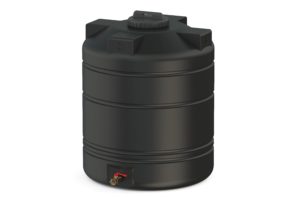Many businesses need water tanks to enhance their efficiency. Restaurants can use water tanks to collect rainwater in the kitchen and bathrooms, while hotels can use them to collect wastewater from the showers and laundry machines for landscaping. Moreover, manufacturing plants can also use water tanks to store water from a nearby aquifer to reduce their reliance on municipal water.
What Are Water Tanks?
Water tanks are containers that can store water for businesses that need a consistent supply of water for their operations.
The main types of water tanks include rainwater, greywater, and potable water tanks. Rainwater tanks collect rainwater for on-site use. On the other hand, greywater tanks collect wastewater from sinks, showers, and laundry machines for on-site reuse. Potable water tanks store drinking water.
If you’re considering installing water tanks for your business, choose the highest quality materials and construction methods from a reputable supplier, such as The Water Tank Factory, to ensure they’re durable and long-lasting.

How To Use Water Tanks To Enhance Business Efficiency
Here are some ways to use water tanks to enhance business efficiency:
- Reduce Water Costs
The Environmental Protection Agency states that small businesses use an average of 100,000 gallons of water per year, which is equivalent to USD$1,000 and USD$2,000 per year. This figure varies depending on the business’s location, size, and type. For example, businesses in dry climates may use more water for irrigation, while businesses in coastal areas may use more water for cooling.
The EPA also estimates that water use in commercial buildings accounts for about 12% of total water usage in the United States. This means that small businesses play a significant role in water consumption.
Businesses can reduce water consumption in the workplace by implementing several measures, such as using water tanks. Water tanks can save businesses money on their water bills by storing rainwater or greywater on-site, which is especially beneficial for companies located in areas with high water rates or during drought.
Improve Water Quality
Businesses should properly maintain their water systems to prevent leaks, corrosion, and other problems. Contaminated water can lead to diarrhea, vomiting, respiratory infections, and other health issues. Moreover, contaminated water can damage equipment, such as pipes, fixtures, and appliances.
Water tanks can also help to improve water quality by filtering out impurities and contaminants. This can be important for businesses that use water for food preparation or other sensitive applications.
Increase Resilience To Drought
Water tanks can help businesses become more resilient to drought by storing water during dry periods. A water tank can store rainwater during wet periods, which can be a reliable source of water during a water crisis. This can help to protect businesses from water shortages and disruptions.
Businesses can choose from different types of water tanks to increase resilience to drought. Aboveground tanks are the most common type of water tank for businesses. Typically, they’re made of steel or plastic and can be either portable or permanently installed.
Underground tanks are less common than aboveground tanks but are suitable for businesses that need to conserve space. Underground tanks are typically made of concrete or steel and installed below ground level.
Additionally, water tanks can help businesses to comply with environmental regulations. For example, some municipalities require businesses to reduce water consumption during droughts. By using water tanks, businesses can meet these requirements without shutting down operations or reducing their output.
Reduce Environmental Impact
Water tanks can help businesses to reduce their environmental impact by decreasing the water drawn from municipal water supplies. This is because water tanks collect rainwater, which businesses can use for irrigation, washing, and toilet flushing. By using rainwater instead of municipal water, businesses can help conserve water resources, reduce their environmental impact, and improve their reputation.
Moreover, water tanks can also help reduce stormwater runoff. Stormwater runoff is water that flows off of roofs, streets, and other hard surfaces during rainfall. This runoff can carry pollutants into rivers, lakes, and oceans, harming aquatic ecosystems. Water tanks can help reduce stormwater runoff by capturing rainwater before it can run off.
Water tanks can also help to reduce the need for energy-intensive water treatment. Municipal water treatment plants use significant energy to treat water for drinking and other purposes. By using rainwater, businesses can help reduce the demand for treated water, leading to energy savings.

Conclusion
Water tanks can be a great way to save money and improve efficiency for businesses of all sizes. By collecting rainwater, reducing stormwater runoff, and conserving energy, water tanks can help businesses to save water, protect the environment, and save money. If you’re a business owner looking to reduce your environmental impact, consider hiring a professional to install a water tank.



